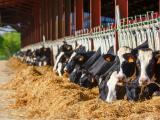Jul 27, 2004 (CIDRAP News) – Experts in Vietnam confirmed today that avian influenza has spread to an 11th province, the southern Mekong Delta province of Long An, a major poultry breeding area, according to news service reports.
In Thailand, at least 17 provinces have been hit with avian flu since the disease resurfaced this month. Two children who last week were thought to have the disease have now been found to have human influenza instead, but a new suspected case involving a 51-year-old farmer is being monitored. Of 20 suspected cases in Thais, 17 have been confirmed as not being avian flu, according to the Chinese news agency Xinhua. The others await laboratory test results.
A Thai government official on Tuesday characterized the second outbreak this year as far different from the first, Xinhua reported. Only 205,000 fowl have been culled since Jul 3, compared with up to 60 million in the previous outbreak, Deputy Prime Minister Chaturon Chaisang was quoted by the Thai News Agency as saying on Tuesday. The government also defended its information disclosure system on the disease, calling it transparent.
Avian flu experts will meet in Thailand beginning on Jul 28 for a 3-day meeting aimed at standardizing ways of testing and encouraging governments to discuss outbreaks. Representatives from several Asian countries as well as the Food and Agriculture Organization of the United Nations (FAO), the World Organization for Animal Health (OIE), and the World Health Organization (WHO) were expected to participate, Reuters reported.
Economic woes caused by avian influenza could worsen following the European Union's announcement yesterday that it was extending its ban on imports of poultry products, and pet birds from nine Asian countries hardest hit by avian flu earlier this year, news services reported. The ban, which was due to expire Aug 15, will continue through Dec 15 for Cambodia, China, Indonesia, Japan, Laos, Pakistan, South Korea, Thailand, and Vietnam.
Avian flu has claimed 24 human lives in Asia this year, Agence France-Presse (AFP) reported. A WHO official based in Thailand, Dr. Somchai Peerapakorn, told The Nation, a Thai newspaper, on Jul 26 that the WHO is willing to develop a human vaccine to prevent the spread of avian flu from poultry to humans.
Creating such a vaccine would be a challenge, said Michael T. Osterholm, PhD, MPH, director of CIDRAP, publisher of this Web site. He noted that initial studies indicate current H5N1 strains obtained from humans have been poorly immunogenic when made into vaccines and used in test animals.
Osterholm raised three concerns that illustrate challenges to creating the vaccine: A successful human vaccine would need to spark production of sufficient antibodies to prevent illness. Then would come the question of how much vaccine can be made. Third, if human-to-human transmission were to occur, there is no evidence that a vaccine produced for current strains would protect people.
Amy Becker is a freelance reporter for CIDRAP. She will enter the University of Minnesota's graduate program in public health administration and policy in fall 2004.


















